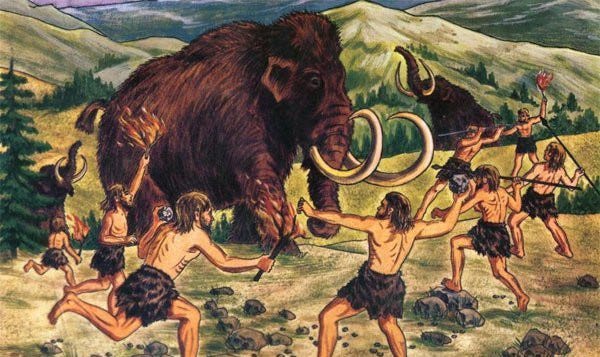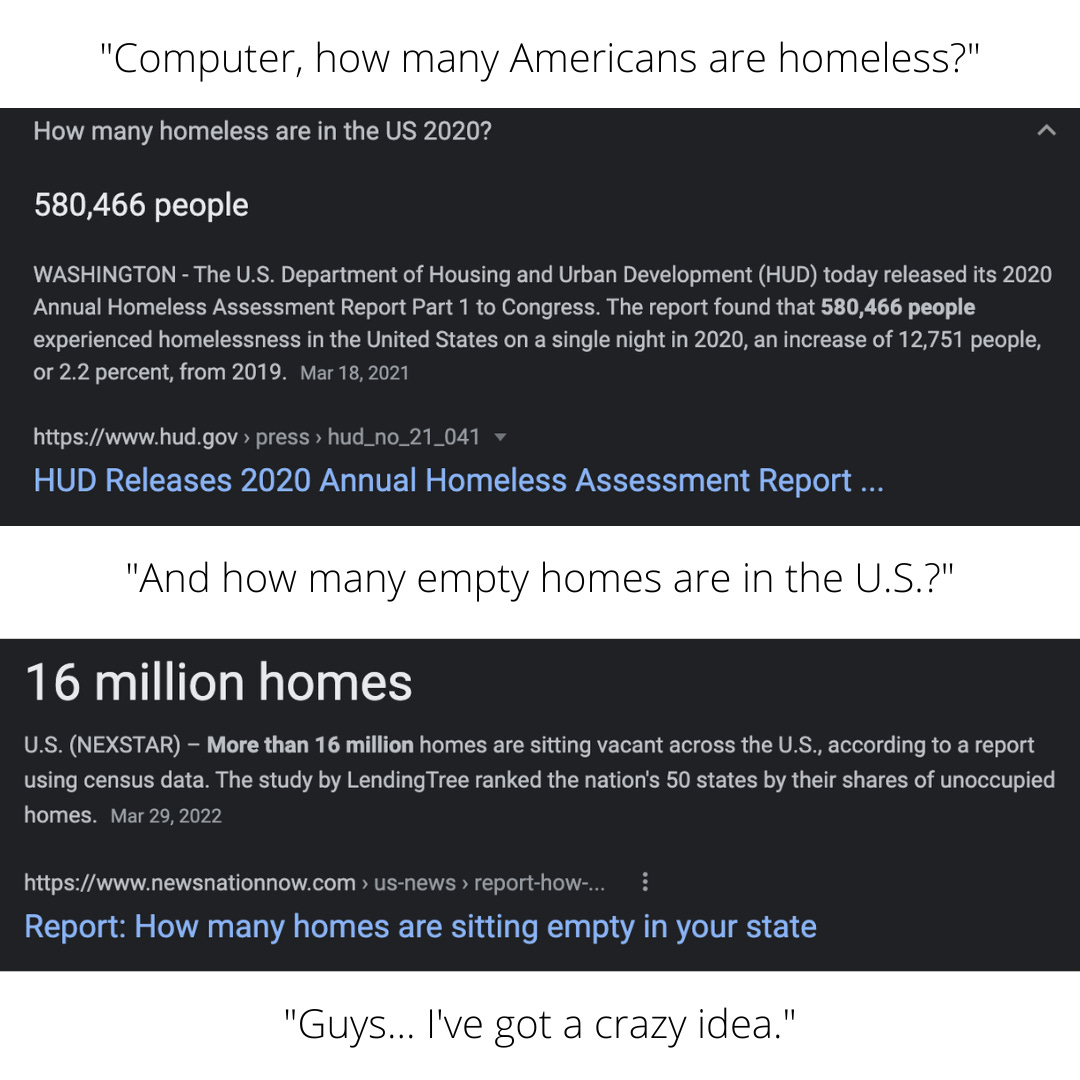Thoughts on a Moneyless Society
How it might work and knowing what we don't know.
I’m excited to say JoeWrote has crossed 300 subscribers!!! Thank you to all of you for allowing me to occupy your inbox. In celebration, I’ve unlocked this paying-subscriber-only post for you to enjoy. Consider becoming a paying subscriber to access exclusive content and support my work.
Enjoy! — Joe

While the definition of Communism varies from comrade to comrade, most are along the lines of: “a stateless, classless, moneyless society where the means of production are collectively owned.” The “moneyless” part is often the most difficult for people to wrap their heads around, arising questions such as:
“Without money, how will we incentivize people to do dangerous and unappealing jobs? If all are compensated equally, won’t everyone want to be a video game-tester and not a toilet-cleaner?”
“Without money, how will we reward extraordinary feats and discoveries, like inventing a life-saving drug or writing the greatest novel of all time?”
“Without money, how will we motivate people to ‘go the extra mile’ when needed, such as working overtime at a store to meet the holiday rush?”
To answer these questions about a post-currency future, it would help to take ourselves back in time to try to imagine the world as it is today. Pretend you’re a hunter-gatherer. After a long day of berry harvesting, you lay down and ponder humanity’s future. Try as you may, it would be impossible for you to picture the complex economy of 21st-century global capitalism. And not only would the technological innovations of airplanes and quantum computers elude your imagination, but so would the social, political, and financial relations that enabled humans to turn natural goods into economic value. In fact, the mere notion of economic value would be impossible for your hunter-gather self to theorize (no offense).

This isn’t to look down on our primitive ancestors. The same failure to envision would be felt by the wisest philosophers of Ancient Greece and the highest lords of feudal Europe. No matter how esteemed and wealthy they may have been, in their ears, the case for modern Capitalism would have sounded fantasy.
Now, understand that those of us who live in a capitalist society find ourselves in the same predicament as we try to consider a future without currency exchange.
No Money No Problems
Returning to the present (but maintaining acceptance of our limited foresight), we can begin to frame how a moneyless society might work while leaving space for the intricate details only future generations can determine.
So while our great (10x) grandchildren will handle the nuance, what we in 2022 can imagine is how the material relations of modern life — Commodity Scarcity, need for Labor, and The Role of Government — could evolve to free society from the necessity of exchange. I say “evolve,” as in many ways the answers are all around us.
Commodity Scarcity. Markets are a mechanism to distribute scarce goods. If there aren’t enough oranges for everyone to eat one every day, markets will distribute oranges to those who crave citrus, while those who prefer apples can spend their money elsewhere. But as humanity develops, goods that were once scarce are found to be in ample supply. For example, shelter.
By moving away from Capitalism, which requires scarcity (and therefore currency) to function, non-scarce goods can be distributed to all through a Socialist system. In fact, such a system existed long ago in the days of Ancient Rome, where the Roman state distributed food as a public good. If social distribution of non-scarce goods could be done with wooden ships and month-long communication delays, surely it can be done with 18-wheelers and the internet.
Labor. Ever since the conception of the robot, humans have been fascinated with artificial intelligence and the idea of a world unneeding human labor.
Nearly every depiction of a moneyless society factors for the considerable portion of our economy that will one day be automated. While society is just now initiating this stage (such as replacing workers with self-checkout machines), it feels safe to say the next centuries will see jobs such as Uber driver, pilot, janitor, and many others replaced by machines. To some, this sounds utopic. To others, dystopic. If your job was on the aforementioned list, fear of replacement is not unwarranted.
But that fear is only valid if the means of production remain in the hands of a select few (capitalists), who, guided by the Mission Statement of Capitalism, will prioritize profit. If a capitalist can cut labor costs by replacing the toilet-cleaner with a robot, they will. But, if companies were controlled by their workers (or society at large), automating an unpleasant job would free that individual to contribute in other ways, reducing working hours for all. Scale this concept up to the entire economy, and we can see how automation will reduce the need for labor, and hence the need for currency as a reward.
Role of Government. In some ways, governments have already eliminated currency from certain industries by distributing public goods. Take education for example. In the U.S., public schools are free*. Just bring your child, have their papers in order, and the good of education will be provided, no tuition is necessary.
“But,” you say. “Schools aren’t free. They’re funded by taxes, making them free*.”
You are correct.
Taxes, the practice of a government taking back a portion of the currency it created, are a necessary way to ensure we can pay teachers and buy pencils.

In a vacuum, the government could not eliminate the need for money by providing everything as a public good. But following the institution of mass automation, elimination of scarcity, and transferring ownership of the means of production from the few to the many, what we now consider free* — education, transportation, libraries, etc. — could expand to encompass the entire economy, from healthcare to PlayStations.
Knowing What We Don’t Know
Make no mistake, the paragraphs above are not a meticulous manifesto on how to operate modern society without currency. To outlaw the dollar overnight would bring unfathomable chaos, and is not what I’m suggesting.
Instead, I offer these three points — Scarcity, Labor, and The Role of Government — to provoke thought. Much as Roman marketplaces and Ottoman bazaars held characteristics now found in 21st-century international Capitalism, we, the modern people, can start pulling threads where our society has already moved past or is capable of moving past the need for currency exchange.
If you’re not entirely convinced, that is O.K. Just as feudal lords could never understand worker health insurance benefits or the leveraged buyout of a Fortune 500 company, our human naivety hamper us from determining the minute details of a moneyless society.
But what we can do is sketch with pencil, so the emancipated hands of our children may write with ink.
Financial support is great, but not the only way to support my work. All my readers are cool and popular, so please help me grow by sharing JoeWrote with your friends and family by mouth or on social media. Cheers! Joe
Stuff I Care About
I wasn’t sure how Quentin Tarantino’s debut novel Once Upon a Time in Hollywood would be. I’m happy to say it was a compelling read, even if you’ve seen the movie.
2. On the heels of yet another mass shooting, I’m re-visiting Danny Katch’s fantastic article on how the Left should balance gun control without further enabling the state to oppress marginalized communities. What a Socialist Approach to Gun Control Should Look Like
3. “The Supreme Court sucks” is perhaps my longest-held political belief. Which is why I’m so mad I only just discovered 5-4, a podcast about “How Much the Supreme Court Sucks.” Check out their latest unlocked episode about Supreme Court Justice Brett “Douchbag” Kavanaugh.





